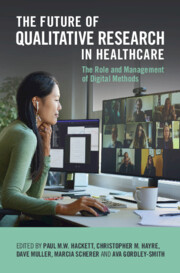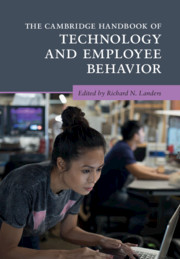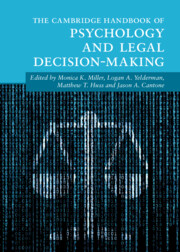The Future of Qualitative Research in Healthcare
Digital methods in healthcare research have been steadily gaining ground but, until recently, were superseded by conventional face-to-face approaches wherever possible. However, the COVID-19 pandemic rendered in-person forms of data collection largely impossible, propelling digital approaches to the forefront. This book offers a digital lens in the participatory perspective of ethnography, a qualitative methodology. A series of chapters from internationally distinguished and rising authors present digital platforms and techniques and apply these to a wide range of healthcare studies. The authors highlight the different aspects of digital research approaches as well as reflecting on and proffering digital approaches to qualitative research for the future. Will these new digital health techniques be embraced, or will researchers be keen to revert to the traditional methods? With its unique approach, this is an invaluable resource for both prospective and experienced qualitative researchers in a broad array of medical and health disciplines.
- Features contributions from an international body of experts providing innovative methods and methodology to advance technology in health research
- Recognizes the positive and negative aspects of adopting online health research, which comes with its own ethical and moral considerations, and illustrates both the benefits and drawbacks of these digital approaches
- Displays a forward-thinking perspective identifying growing areas of research to motivate future exploration and innovation possibilities
Reviews & endorsements
‘This book explores an array of qualitative research methods under new challenging circumstances resulting from the Covid 19 pandemic impacting on fieldwork settings, researchers, and participants during data collection. The chapters insightfully move beyond the false binary between traditional and digital qualitative methods, and reveal the infinite adaptability of conversational interviews, online digital recordings, and virtual ethnography. The book speaks out for the rich integration of techniques and technologies, operating innovative and creative ways of ‘being there’ in healthcare research through depth theory and resourceful practice for students and future researchers.’ Shane Blackman, Canterbury Christ Church University, author of 'Hidden Ethnography': Crossing Emotional Borders in Qualitative Accounts of Young People's Lives
Product details
November 2024Paperback
9781009073226
278 pages
228 × 151 × 15 mm
0.4kg
Available
Table of Contents
- Acknowledgements
- Dedication
- Preface
- 1. Introduction to digital platforms and digital research approaches, encryption, cybersecurity and bandwidth: considerations for qualitative researchers Christopher Hayre, Paul Hackett, Ava Gordley-Smith, Marcia Scherer and Dave Muller
- 2. Doing digital qualitative research: key ethical considerations Rebecca Wise, Jeff Gavin and Karen Rodham
- 3. Using video diaries for remote observational research Steve Hagelman and Melinda Rea-Holloway
- 4. (In)equitable Shifts: mapping a pivot to digital diary and remote research methods with queer youth in the times of COVID-19 Rodney Stehr [1,3], Danya Fast [1,2], Rod Knight [1,2]§*
- 5. 'To be or not to be?' Qualitative Research Upon and During a Pandemic Outbreak Gillie Gabay
- 6. Adopting digital methods: conducting qualitative interviews and focus groups in the midst of a pandemic Ruth Strudwick and Hollie Hadwen
- 7. Lessons learned conducting online qualitative interviews during Covid-19 Sally Lindsay, Hiba Ahmed, Vanessa Tomas and Abirami Vijaykaumar
- 8. Virtual Interviewing in the Age of Covid-19: considerations for Qualitative Research Charles Edmund Degeneffe, Ph.D., MSSW, CRC
- 9. Minimizing the Impact Technology has on Interviewer-Interviewee Rapport: An Existential-Phenomenological Analysis Patrick M Whitehead and Gary Senecal
- 10. Participatory and invasive online worlds: exploring the research method of qualitative digital ethnography Adele Philips and Shane Blackman Canterbury Christ Church University, United Kingdom
- 11. Using online survey tools to improve access to international experts: The 'E-Delphi' Georgina Clutterbuck
- 12. Refining Interview Protocol for Online Interview on the Employment of Person with Down Syndrome: Insights from A Pilot Test Md Mizanur Rahmana*, Abg Safuana, Sharifa Ezatb, Razitasham Safiia, Chen Yoke Yonga, Rosalia Saimona, Ting Chuong Hocka
- 13. Technology-aided Programs to Support Leisure, Communication, and Daily Activities in People with Intellectual and Multiple Disabilities Giulio E. Lancioni, Nirbhay N. Singh, Mark F. O'Reilly, Jeff Sigafoos and Gloria Alberti
- 14. Virtual Qualitative Data Collection: a South African autoethnographic perspective Shantel Lewis, Prof Charlene Downing, Dr Christopher M. Hayre
- Afterword Paul M. W. Hackett, Christopher M. Hayre, Ava Gordley-Smith, Marcia Scherer and Dave Muller.





